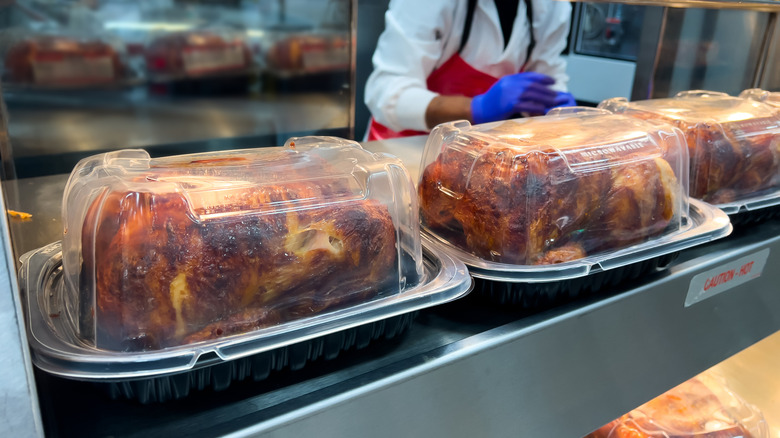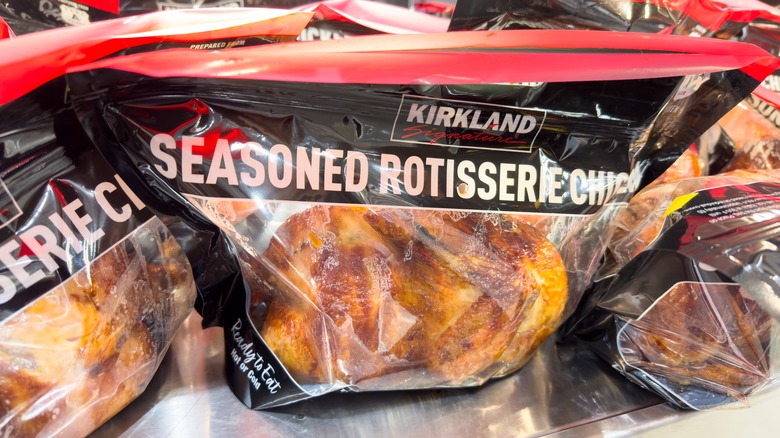What Makes Rotisserie Chickens Cheaper Than Raw Poultry At Grocery Stores?
It's a financial conundrum that confronts many observant shoppers. In a typical grocery store, it's often more affordable (not to mention significantly more convenient) to grab a pre-made rotisserie chicken from the prepared food section than it is to buy a similarly sized bird from the butcher. At first, this might seem odd, considering the added time, energy, ingredients, and equipment required to cook a chicken in-store. However, a closer look at the economics of supermarkets reveals there's solid business thinking behind the pricing strategy.
Whole uncooked chickens, like all fresh meat, have a limited shelf life. Birds that go bad in the meat case are a total loss for grocery stores, leading many to take steps to recover some of their investment. Often, this involves preparing the chicken in rotisserie cookers. Even if the eventual price of the rotisserie chicken is less than it would have been uncooked, the store still comes out ahead, avoiding waste.
The focus on eliminating waste doesn't stop there. Many supermarkets repurpose cooked rotisserie chickens that don't sell into other, longer-lasting products such as chicken salad, resulting in little, if any, food wasted. Often, home cooks do the same, using one of many rotisserie chicken recipes to make meals like soups or casseroles.
Losing money to make money
In some cases, there's more to the story than just efficient food usage and a desire to squeeze every penny out of products. Many grocery store chains use rotisserie chicken as a "loss leader," a product designed to get customers in the door, where they'll likely spend more on other items. Notably, this includes Costco, which loses somewhere in the tens to hundreds of millions per year on its low-cost chickens. Even shoppers at traditional supermarkets are prone to grabbing a convenient pre-made side, dessert, or other item to complete their quick dinner.
However, shoppers shouldn't be distracted by the low price and keep an eye out for the biggest red flags with grocery store rotisserie chickens. These can range from a lack of color and noticeably light weight to cracked skin or an overly long ingredient label. Keep in mind that some rotisserie chickens may be nearly expired
These are just a few of the things that rotisserie chicken vendors don't want you to know, but there's no doubt they're among the most important. So, there's no need to be suspicious if you're comparing prices between cooked rotisserie chickens and fresh birds. The prepared one is cheaper for reasons that benefit both you and the store.

